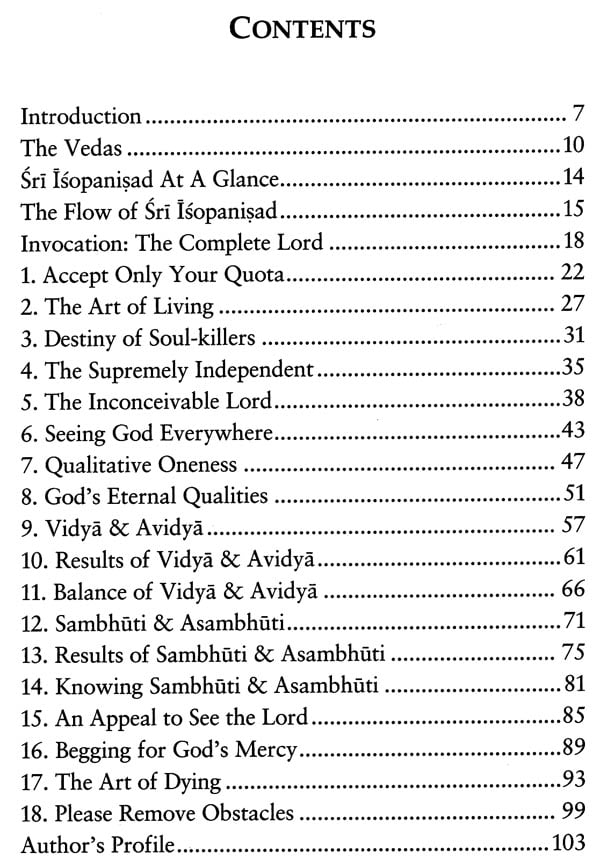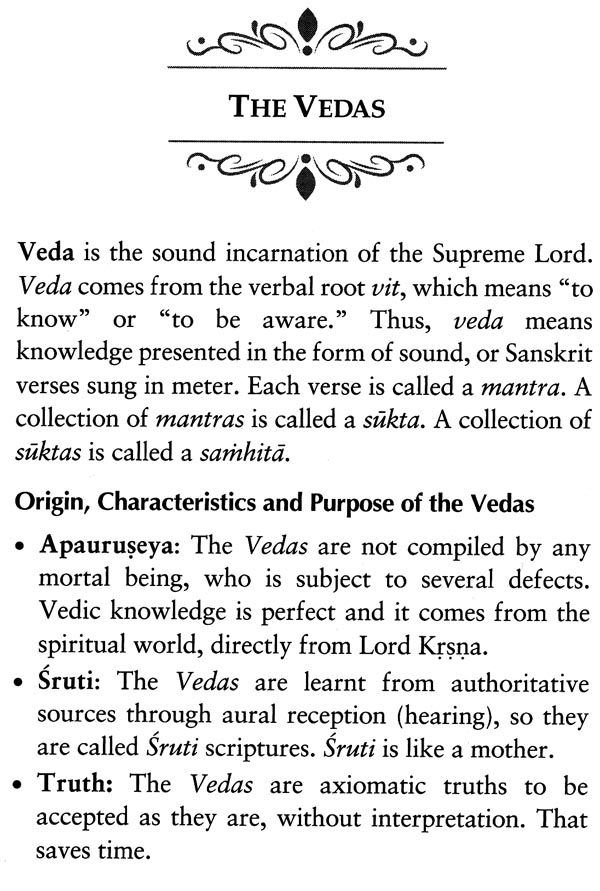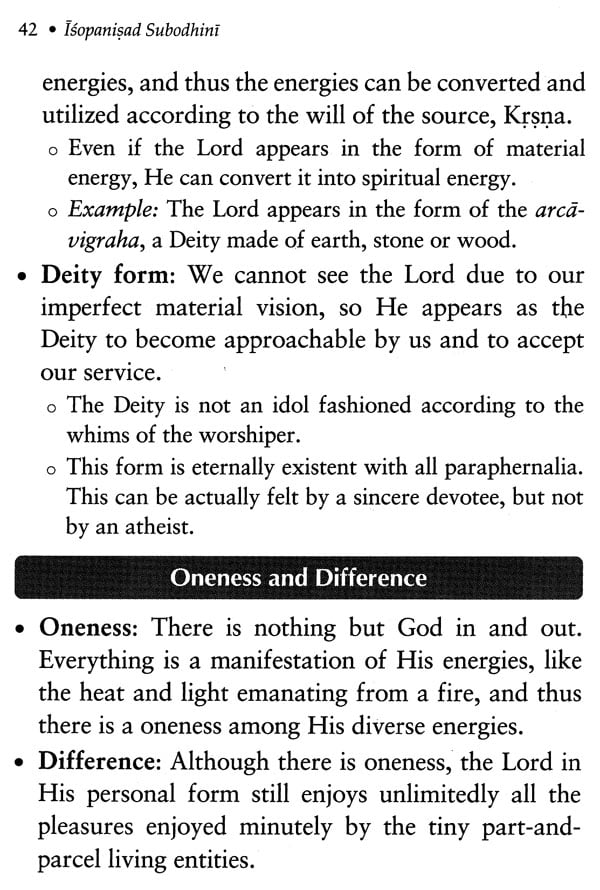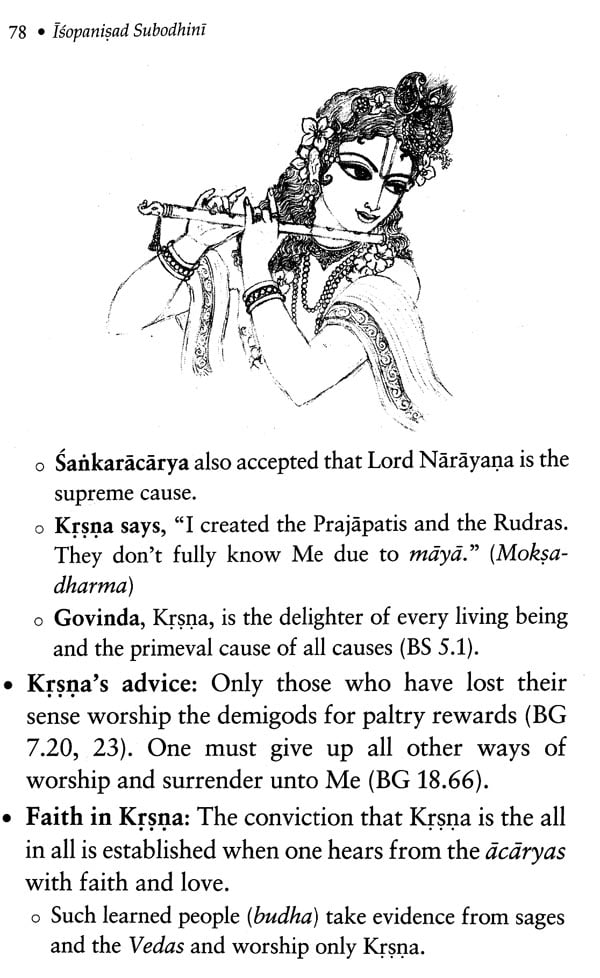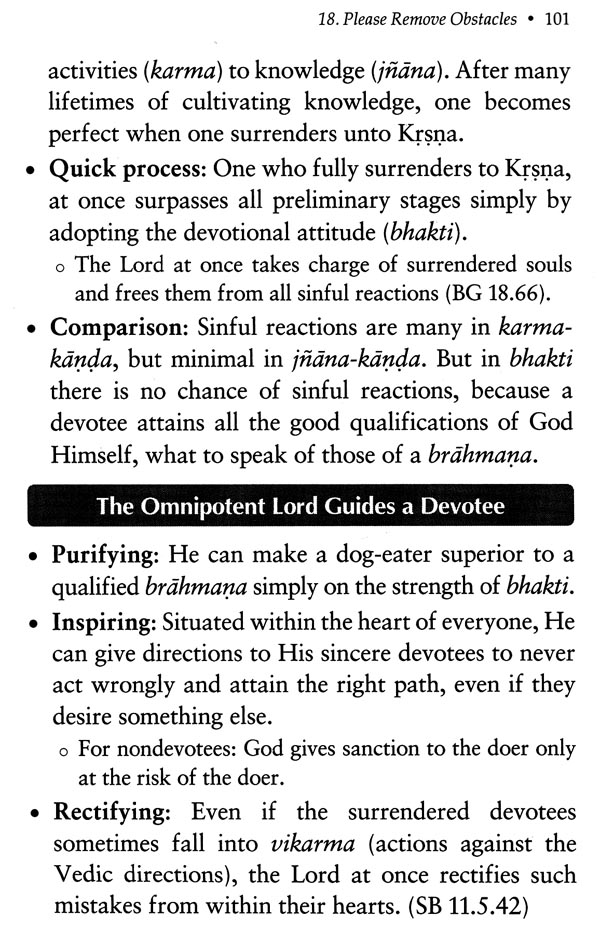
Isopnisad Subodhini (Enriching the Experience of Sri Isopnisad Study)
Book Specification
| Item Code: | NAZ482 |
| Author: | Gauranga Darshan Das |
| Publisher: | Tulsi Books |
| Language: | English |
| Edition: | 2020 |
| ISBN: | 9789381283769 |
| Pages: | 102 (4 B/W Illustrations) |
| Cover: | PAPERBACK |
| Other Details | 6.50 X 4.50 inch |
| Weight | 80 gm |
Book Description
The Isopanisad is the last chapter of the Sukla Yajur-Veda, and is contained within the Vajasaneya-samhita, so it is also called Vajasaneya-saraitopanisad. The Isopanisad clearly defines five tattva or truths, namely isvara (God), jiva (living entity), prakrti (material nature), kala (time) and karma (work). These are also described in the essence of all Upanisads, the Bhagavad-gita, or Gitopanisad. Since the Isopanisad mantras define the nature of the atma, they are not useful for performing karma for enjoying in this world but are useful for worship (upasana) of the Supreme Lord to establish a relationship with Him based on favorable service attitude.
It is said that the sage named Dadyan, the son of Atharvana, revealed these mantras in their current form. Dadyan had a pure heart, selfless conduct, sense control, mind control, faith on scriptures and was desirous of good association. When he approached his father to know about the absolute truth, the father spoke the Isopanisad.
By the mantras of Isopanisad, Svayambhuva Manu praised Lord Yajna (an incarnation of Visnu), who was the son of Manu's daughter Akuti.
Book's Contents and Sample Pages
